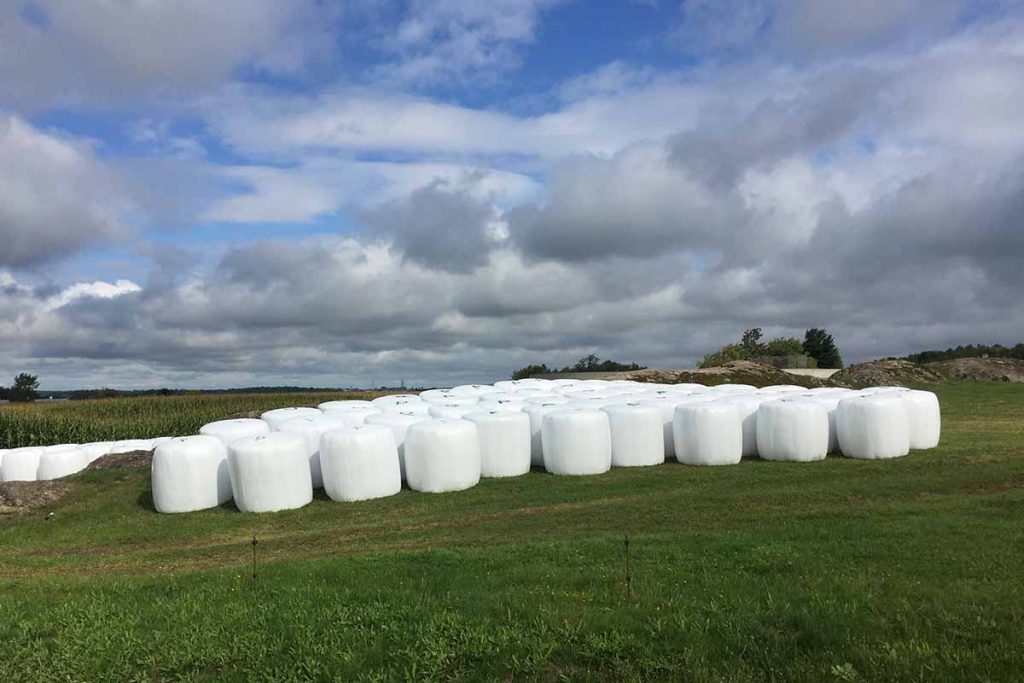From the start of the ‘Recycle It!’ pilot in October 2019 and continuing through December 2022, farmers have brought close to 2,270 tonnes of grain bag plastic and over 336 tonnes of used plastic baler twine to designated collection locations for recycling. For grain bags, that’s equal to 126 semi-trailers full of rolled up grain bags, lined up end to end for two km. The twine collected for recycling equates to the amount that would be used to wrap 922,000 large square hay bales.
The pilot project is led by the multi-stakeholder Agricultural Plastics Recycling Group. Funds were granted for the pilot by the Government of Alberta and are administered by Alberta Beef Producers. The long-term goal is to expand the pilot into a permanent program.
“This time of year, I have my cows on bale grazing and most of the twine I take off my bales is clean and easy to recycle. Putting it in a recycling bag rather than a garbage bag was an easy habit to form and I am glad there is a better place for it to go, rather than into a landfill,” said beef producer and Chair of the Alberta Agricultural Plastics Recycling Group (APRG) Assar Grinde.
Cleanfarms, a non-profit industry stewardship organization operates the Alberta pilot on behalf of APRG. Cleanfarms has contracted with 47 collection partners to establish a network of 147 individual collection locations – 45 that collect both grain bags and twine, one that collects grain bags only and 101 that collect twine only. Cleanfarms is opening new collection locations regularly to provide additional access for farmers.
“It is a pleasure to work with APRG and Alberta farmers to help make recycling ag plastics a viable option for managing these materials,” said Cleanfarms Executive Director Barry Friesen. “Farmers in this province have already shown that they are willing to recycle these used ag tools as soon as opportunities are available to them. We credit them for what they have accomplished so far and look forward to further successes in this program.”
Cleanfarms arranges for the collection and transportation of the ag plastics as the first step in the recycling process. Used grain bags go to one of two facilities in Alberta, one in Bashaw and the other near Bassano, and baler twine goes to recycling facilities in the US.
Grain bag plastic is converted into plastic pellets which are shipped to manufacturers across Canada and the USA to be used to make new plastic items such as agricultural film plastics, plastic bags, composite dimensional lumber, and agricultural fence posts. Research and development are underway to use these pellets in the manufacturing of new grain bags.
Twine is recycled into plastic pellets which are blended with other plastic resins to manufacture products such as car parts, flowerpots, composite decking, and dimensional lumber.
Farmers can go to AlbertaAgPlastics.ca on the Cleanfarms website to find twine and grain bag collection sites and instructions on how to prepare the material for recycling.













